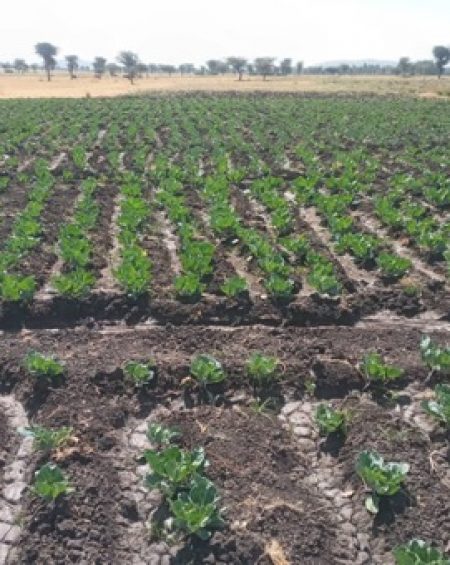From Organic Farmers to Entrepreneurs
Over the past year, the graduates of our organic horticulture training programme, our Hub members, have been able to experience many different aspects of business development and organic vegetable production in context.
Following their graduation, the Hub members were given the opportunity, by Green Flower Foundation, to set up and launch their chosen businesses to sell the vegetables they produce enabling them to generate a sustainable income.
We soon realised that, although the young graduates were willing to make a positive change for themselves and for their country by producing food organically, being an entrepreneur requires a further set of skills which they had not yet acquired. As a matter of fact, the first thing our Hub members learned was that as entrepreneurs they would need to wear a lot of different hats. These hats include accounting, marketing, selling, logistics, farming and so on. Finding the time to understand and balance all these roles requires a great deal of practice and patience.
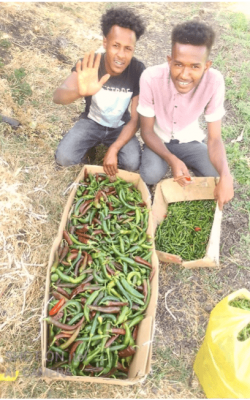
A couple of months ago, when our Hub members first got their land, they were eager and started producing straight away. They were able to harvest a large quantity of vegetables, but they were soon confronted with their first challenges: “We have all these vegetables but to whom are we going to sell? At what price? How do we communicate about organic farming in a country where it is almost non-existent?”
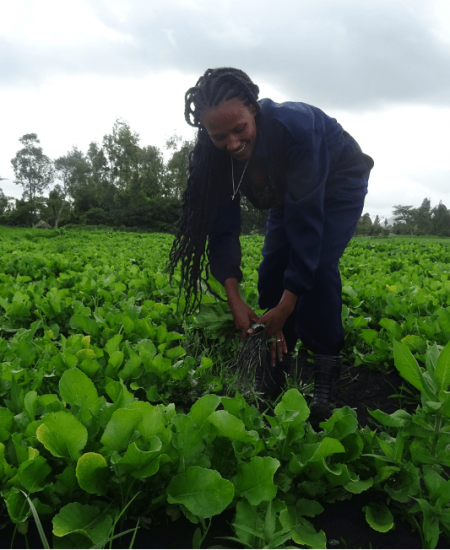
Getting the right support
Having mentors or teachers is a valuable way to learn, grow and avoid making classic entrepreneurial mistakes.
Thus, since the beginning of the developmental phase of their companies, the Hub members have been supported by the dedicated GFF team in Bishoftu (from right to left Getachew our Accountant, Esrom our Farm coordinator, Adem our Project manager and in-country representative, Fikirte our Hub coordinator and Patile our Head of Projects and Operations from Switzerland), who follow their progress on a daily basis and support them with their financial planning, budget needs, access to markets, legal procedures, logistics, production, planification, motivation, crops and harvest etc. Hub members are also offered the opportunity to join specific training sessions led by organic experts as well as English lessons.
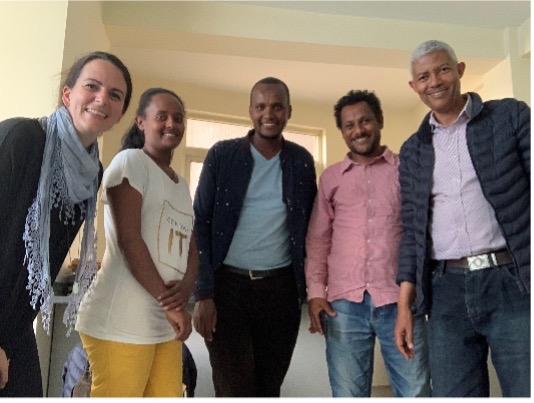
In addition, and in order to facilitate the access to market and commercial opportunities in the emerging organic sector, the hub members benefit from the support and expertise of two business coaches (group training and individual coaching sessions every week).
The prospects and communication efforts quickly aroused the interest of many customers. Especially in Addis Ababa, the capital of the country located approximately 45 minutes from Bishoftu, where development has soared over recent years. Addis is home to many expatriates and to a more affluent population who are keen to consume organic vegetables.
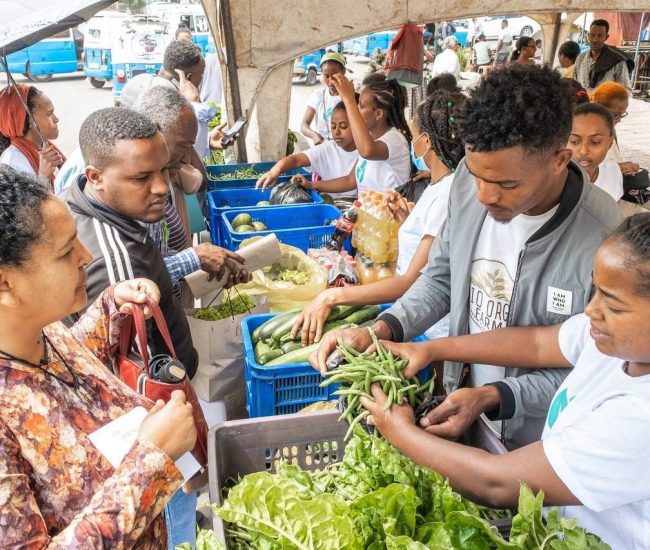
Thanks to the help and guidance of our business coaches and of our team, many business opportunities have been created with international schools, hotels, restaurants, and supermarkets located in the capital. Aside from Addis, the students sell their vegetables at the Zuqala market in Bishoftu every week. One of our hub members, Meheret, has also launched her new shop on Bishoftu’s main road, where she is selling fresh juice and organic vegetables which she mainly buys from her former classmates.
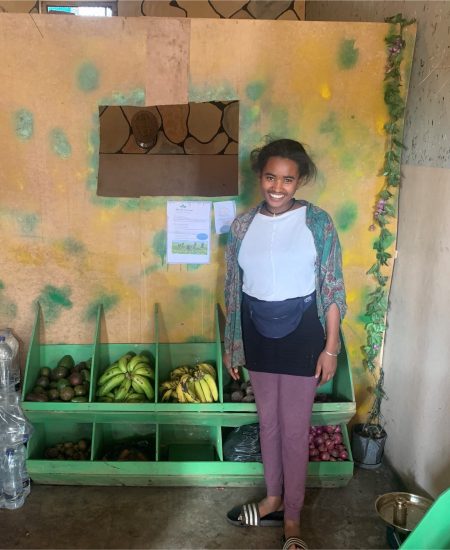
The path to success
Objectively, the reality of being an entrepreneur is that there will be some very hard days and a lot of ups and downs. Alex, one of our Hub members, told us not long ago “We have learnt that entrepreneurs are risk takers”. It is true that there will always be a risk of failing, sometimes due to external factors (water shortage, weather, diseases). To a certain extent, we can anticipate some of these things, but we cannot control everything, and issues must be dealt with. This is also part of the learning process.
Being a business owner, not only requires agility, planning, hard work, determination, trial and error, failure, but it most of all requires believing in what we do and to do it with passion.
The Green Flower Foundation is proud that most of the young organic farming entrepreneurs really give themselves the means to succeed, they try, they fail, and they get up again. GFF is impressed by all the work and accomplishments carried out by the Hub members during the past year and strongly encourages them to continue their efforts. When asked what their driving force for motivation is, the Hub members reply: “we hope to extend our farm, increase the sale of our organic vegetables to improve the health of many, teach more people about organic farming and create job opportunities for others”.
Achieving overnight success is extremely rare. Building a sustainable business is a long-term process however, slowly but surely, with the means and the right mindset we are convinced that they will achieve their goals.
